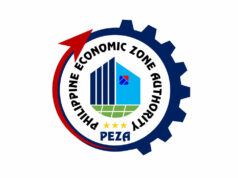By Victor V. Saulon, Sub-Editor
CONSUMER group Laban Konsyumer Inc. (LKI) is asking the Department of Energy (DoE) to monitor oil companies’ inventory to ensure they charge fair prices on fuel products acquired before the attacks on the Saudi oil refineries.
“The DoE should intervene so existing inventory (is) priced at levels pre-Saudi oil incident,” LKI President Victorio Mario A. Dimagiba said in a statement during the weekend.
Mr. Dimagiba, a former undersecretary of the Department of Trade and Industry, said the oil industry must not take advantage of a force majeure situation at the expense of consumers.
Separately, the Senate Committee on Energy called on the department to disclose its plan to counter the impact on energy security after the strike on the oil processing facilities of Saudi Arabia, which has raised concerns on possible supply disruptions from the Persian Gulf should the tensions escalate.
Mr. Dimagiba said the oil deregulation law empowers the DoE “to take affirmative action in the interest of the consumers.”
LKI expects prices of petroleum products to jump this week, with gasoline prices possibly rising by P2.10 to P2.30 per liter, diesel by P1.60 to P1.80 per liter, and kerosene by P1.50 to P1.60 per liter.
On Sunday, Pilipinas Shell Petroleum Corp. was the first to announce price increases for petroleum products, which are higher than what LKI expected.
The prices of gasoline products are to increase on Tuesday by P2.35 per liter, diesel by P1.80 per liter and kerosene by P1.75 per liter.
Last week, the prices of gasoline, diesel and kerosene products rose by P0.50, P0.10 and P0.25 per liter, respectively, immediately after the weekend when drones attacked Saudi Arabia’s oil processing facilities.
After the drone strikes, the DoE said it was seeking to ensure that relevant energy agencies were “sufficiently prepared to face the potential impact of this unfortunate incident, if any, on the country.”
The department said it was premature at that time to say whether the attack would have an adverse impact on the country. It said it was closely monitoring developments in the international markets. But it warned that if there would be an impact on prices, it would be felt by Tuesday.
Ahead of that, Senator Sherwin T. Gatchalian, who heads the Senate’s energy committee, called for an inquiry on Monday to look into the DoE’s plans to ensure an adequate oil supply after the attack on the facilities of Saudi Aramco.
The panel will also seek to be briefed on the plans of the DoE to achieve energy security and mitigate the adverse repercussions of supply shocks on the country’s oil supply and prices.
Mr. Gatchalian said the DoE, as the primary agency in charge of planning and implementing comprehensive programs for the supply of energy, needs to inform the public about the effects of the attacks on oil supply and prices in the Philippines.
He said the DoE “also needs to state its short- and medium- term plans and strategies to ensure continuous and sufficient supply and reasonable prices amidst strains in the Middle East, as well as its its long-term plans and strategies to achieve energy security in order to prevent vulnerability to supply shocks and insulate consumers from unexpected shortages and sharp price increases.”
On Sunday, the DoE said it had reconvened with the proposed members of the oil contingency task force (OCTF) on Sept. 20 to finalize the working draft establishing a working group that would implement the country’s contingency strategies after the drone strike in Saudi Arabia.
“We realize the importance of addressing issues beforehand so that the government may have contingency measures to sustain the country’s economic growth and provide basic services to the people. The activation of the OCTF is vital to our resiliency because we are currently dependent on oil imports,” Energy Secretary Alfonso G. Cusi said.
The department said the OCTF is activated in preparation for natural or man-made disasters to address the country’s immediate oil supply concerns “and, in this case, the impact of the geopolitical and disaster-related events that may cause supply disruptions or sharp volatility in the world oil prices.”
The DoE said it had also called on the oil industry to discuss how the impact of the world oil prices might affect the country’s economy. It said the discussions revolved around the strict implementation of the minimum inventory requirement (MIR), which is equivalent to stocks of 30 days for oil refiners, 15 days for bulk marketers, and seven days for liquefied petroleum gas firms.
It said a proposal to increase the MIR to 60 days was also raised, but the oil sector representatives said the immediate creation of additional infrastructure and the added logistical demand might prove costly and detrimental to current operations.
On oil prices, the DoE said it had explored the possibility of a staggered oil price increases. It said the oil companies took note of the proposal, but said based on indicative figures in the world oil market, present pump prices remain lower than 2018 figures even with the 2019 tranche of the tax reform. They said the country as a whole is affected by world oil price volatility.
The DoE also said it had raised possible contingency measures, which include the preparation of oil supply replacement, and a possible increase in the biofuel blend as an option to mitigate potential supply shortages.
Mr. Cusi said the DoE was “working 24/7 to address these oil-related concerns brought about by the attacks in one of our biggest oil sources in the Middle East.”
“We are reminding everyone to practice energy efficiency measures like carpooling and the use of public transport so that we may all contribute to help the nation and the environment,” he said.



